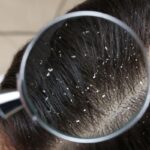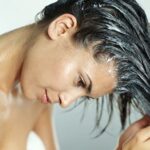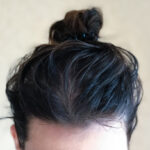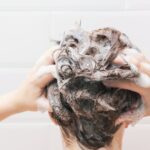Why Hair Gets Greasy in Winter
As winter sets in, the air becomes dry and humidity drops, causing your hair to lose moisture and become dry. To compensate, the scalp produces more oil to maintain the necessary moisture in the hair. However, this leads to a combination of dry and oily hair, making it prone to greasiness and losing its freshness.
Additionally, during winter, many people prefer using hot water for washing their hair, but this further dries out the scalp and hair, stimulating excess oil production. Moreover, overusing conditioner to soften the hair can backfire, making the hair greasy faster.
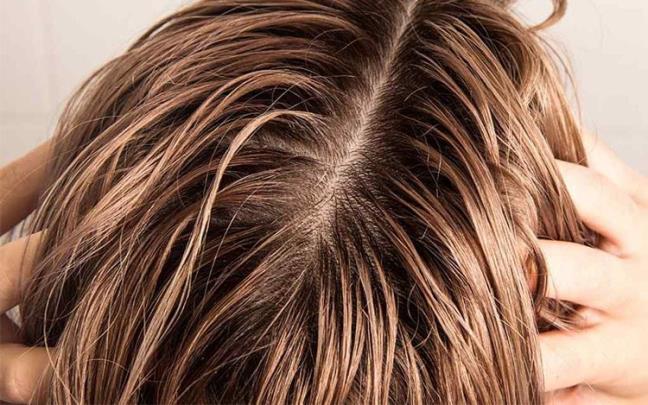
Hot water washing can further dry out the scalp and hair.
Leaving your hair uncovered also allows it to easily collect dust and excess oil from the scalp, aggravating the greasy hair situation.
Ways to Combat Greasy Hair in Winter
Stay Hydrated
Even though winter doesn’t make you feel as thirsty as summer, your body still dehydrates due to dry air. Ensure you drink enough water daily to keep your hair and scalp healthy. Keep a water bottle near your workstation to remind yourself to drink water throughout the day.
Maintain a Balanced Diet
A nutritious diet contributes to healthy hair. Include protein-rich foods like meat and fish, as well as vegetables, especially dark green leafy vegetables such as broccoli and spinach.
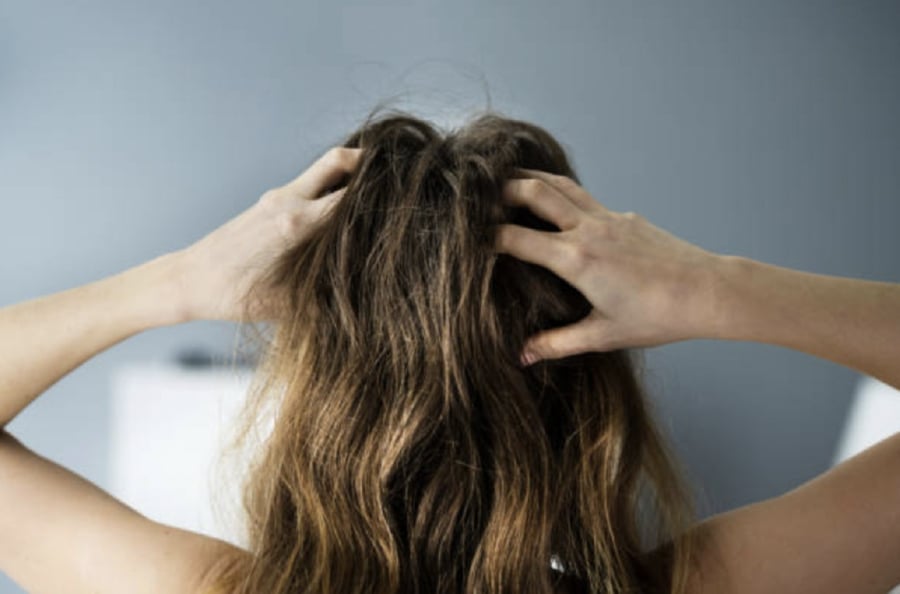
A nutritious diet helps promote healthy hair from within.
Wash Hair with Lukewarm Water: To prevent heat damage, wash your hair with lukewarm water, approximately 2-3 degrees Celsius above body temperature. Washing your hair 2-3 times a week is sufficient; avoid over-washing and limit the use of conditioner, especially keeping it away from direct contact with the scalp.
Choose the Right Shampoo: Depending on your hair type and scalp condition, select a suitable shampoo. If your scalp tends to dry easily, avoid shampoos containing silicone or sulfate as they can further dry out your hair and scalp.
Limit Hair Brushing: Excessive brushing stimulates the scalp to produce more oil. Brush your hair twice a day, and use a wide-toothed comb. Avoid brushing when your hair is wet to prevent damage.
Refrain from Touching Your Hair: When you touch your hair, your hands transfer dirt and oil from the environment, making your hair greasy. Therefore, curb this habit to maintain clean hair.
Minimize Heat Styling: Using high heat for styling during winter can further dry out your hair. Limit the use of hairdryers at high temperatures, and only dry your hair until it’s about 70% dry. Also, use a soft towel to blot your hair before blow-drying.
“The Secret to Healthy Hair: Why I Ditched Daily Shampooing After 30 Years”
For decades, I had been washing my hair daily, oblivious to the fact that this routine might not suit all seasons. However, upon further exploration, I uncovered a transformative truth: adjusting my hair washing frequency according to the seasons is not just beneficial but essential for maintaining vibrant and healthy hair.
























